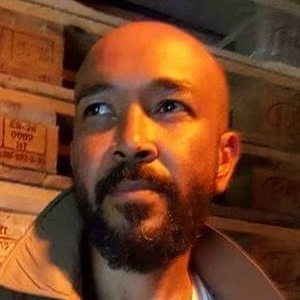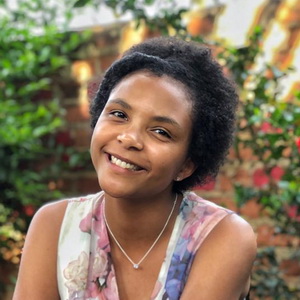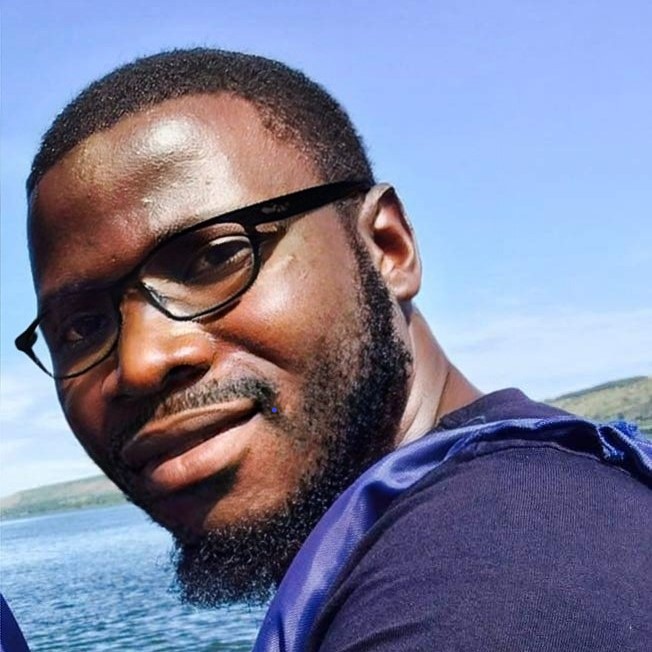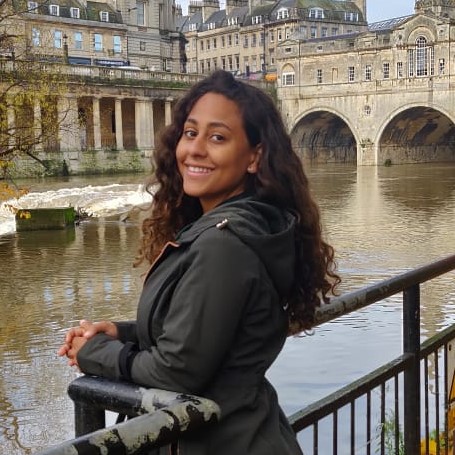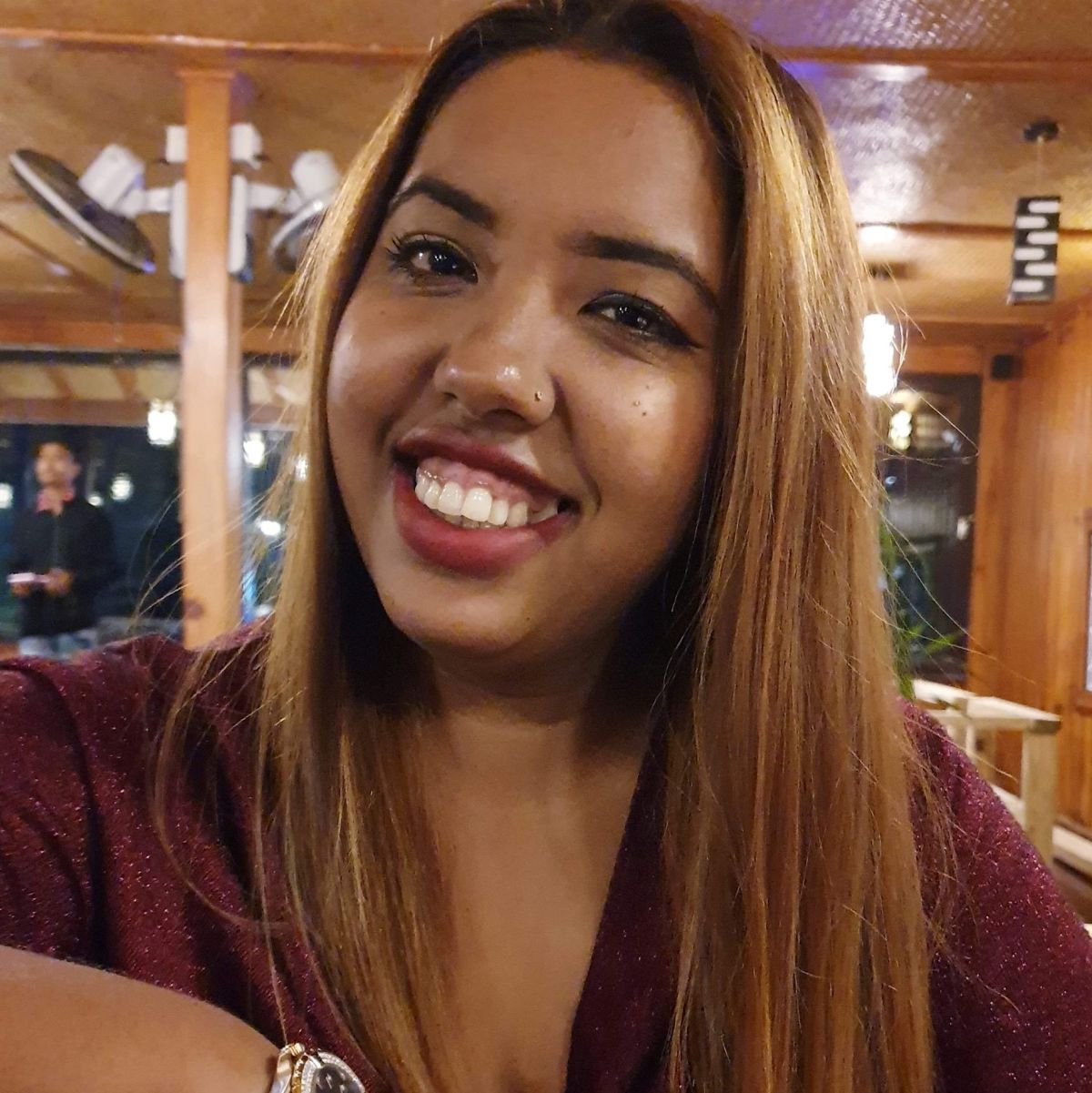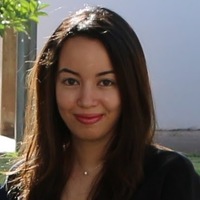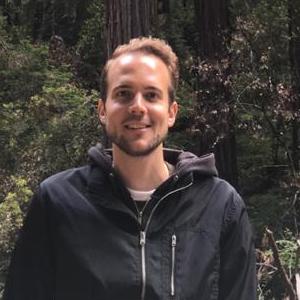Questionner “la Réalité” par le Biais de l’Art
Dans mon art je rends ces tensions et ces expériences visibles. Je veux interpeller le public, confronter les gens à ces croyances qui leurs ont été enseignées et qu’ils·elles n’ont pas encore remises en question. Tout comme le fait que dans ma réalité, l’image des femmes est une image puissante et forte (empoderamente) et non celle de l’être sans défense et fragile que nous sommes entrainé·e·s à percevoir comme féminine.
Brazil, South America
Story by Milton Camilo. Translated by Clémentine Boiffier
Published on June 22, 2020.
This story is also available in 


Je suis un peintre et performeur afro-brésilien, vivant en Allemagne. Avec mon art, je joue avec les expériences que j’ai vécues en grandissant au Brésil ainsi qu’avec celles de ces 20 dernières années passées en Allemagne et je les remets en question. Je me concentre tout particulièrement sur les rôles de genre : ce qu’on nous apprend à croire, les réalités des rôles de genre et les divergences qui existent entre les deux.
J’ai grandi dans un quartier ouvrier de Rio avec ma mère, dans une famille monoparentale. Ma perception des femmes a été façonnée et enseignée par elle. Venant d’une famille matriarcale, j’ai toujours beaucoup appris de la présence des femmes dans ma vie. Je connais l’importance des femmes noires matriarcales au Brésil et celle de leurs rituels. Par exemple, les femmes de ma famille m’ont appris à me servir de ce que la nature a à nous offrir pour rester en bonne santé. Quand nous n’avions pas beaucoup à manger, nous allions ramasser des herbes. Seules les personnes capables de reconnaître ce qui est comestible de ce qui est toxique sont capables de faire cela. Ce savoir, ce sont les femmes qui me l’ont transmis, pas les hommes et cela a eu une forte influence sur moi.
Je ressens les bénéfices de ces enseignements matriarcaux particulièrement aujourd’hui, au temps du coronavirus, où je peux me raccrocher et croire en ce savoir qui m’a été transmis de génération en génération. Le mot portugais empoderamente[1] décrit le pouvoir du savoir et des femmes qui le détiennent. La communauté de femmes noires avec laquelle j’ai grandi a le pouvoir de se démarginaliser[2]: le fait de développer leurs propres stratégies de survie de génération en génération leur confère, par essence, l’empoderamente.
Mon éducation m’a donné une image des femmes comme étant fortes, indépendantes et puissantes. Ce n’est pas la vision de la femme blanche, petite, mince et fragile, cet idéal de beauté féminin qui est le pendant de celui de l’homme fort. Par ailleurs, mon art se nourrit de mes propres expériences en matière de genre et d’identité. Lorsque j’ai commencé la danse classique, j’étais un jeune homme de 19 ans au Brésil, c’est à dire à une époque et à un endroit où il n’était pas socialement accepté d’être un garçon qui danse. Dans mon quartier à Rio j’ai tout de suite été stigmatisé comme étant gay, alors que de mon point de vue, je tombe amoureux des âmes, peu importe leur genre.
Dans mon art je rends ces tensions et ces expériences visibles. Je veux interpeller le public, confronter les gens à ces croyances qui leurs ont été enseignées et qu’ils·elles n’ont pas encore remises en question. Par exemple, dans l’art du XIXe siècle, les femmes sont souvent peintes comme des beautés nues, allongées sur un sofa, presque comme offrande, un sacrifice aux regards des hommes. Comme je l’ai déjà dit, j’ai une image des femmes différente, je les relie à l’empoderamente. Ainsi, ai-je commencé il y a peu, à peindre des hommes nus, comme des beautés fragiles, pour inverser le concept et dans certaines de mes peintures, le genre est représenté comme un concept fluide :
Par conséquent mes peintures peuvent être perçues comme des prises de position politiques, visibles à l’œil de l’observateur·ice attentif·ve. Ils procurent un espace où “la question de l’identité, les cultures, le temps et l’espace sont constamment renégociés et questionnés. Cela se produit sous la forme d’une question ouverte à laquelle la réponse n’est jamais complètement donnée.”[3] J’espère qu’à travers mon art les gens peuvent commencer à questionner, à réfléchir et à déconstruire les concepts qui leur paraissent “normaux” et qu’ils·elles réalisent que la réalité du genre n’est pas aussi binaire qu’elle le paraît. Tout comme le fait que dans ma réalité, l’image des femmes est une image puissante et forte (empoderamente) et non celle de l’être sans défense et fragile que nous sommes entrainé·e·s à percevoir comme féminine.
Notes
[1] L’auteur traduit ce terme par le mot anglais empowerment. Celui-ci renvoie à l’idée que des personnes ou des groupes qui n’ont habituellement pas le pouvoir, s’en saisissent. Il existe plusieurs manières de le traduire en français, comme par “empouvoirement” ou démarginalisation.
[2] Empower themselves dans le texte original. Voir note 1.
[3] Pour en savoir plus, consultez mon site internet: http://www.miltoncamilo.de/index.php
How does this story make you feel?
Follow-up
Do you have any questions after reading this story? Do you want to follow-up on what you've just read? Get in touch with our team to learn more! Send an email to [email protected].
Talk about this Story
Please enable cookies to view the comments powered by Disqus.
Subscribe to our Monthly Newsletter
Stay up to date with new stories on Correspondents of the World by subscribing to our monthly newsletter:
Other Stories in Français
Explore other Topics
Get involved
At Correspondents of the World, we want to contribute to a better understanding of one another in a world that seems to get smaller by the day - but somehow neglects to bring people closer together as well. We think that one of the most frequent reasons for misunderstanding and unnecessarily heated debates is that we don't really understand how each of us is affected differently by global issues.
Our aim is to change that with every personal story we share.
Community Worldwide
Correspondents of the World is not just this website, but also a great community of people from all over the world. While face-to-face meetings are difficult at the moment, our Facebook Community Group is THE place to be to meet other people invested in Correspondents of the World. We are currently running a series of online-tea talks to get to know each other better.











